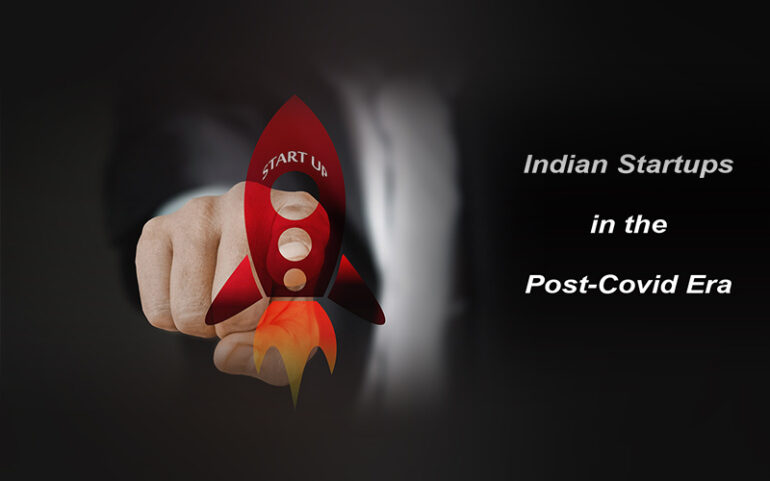The COVID-19 pandemic has brought lessons for all, including the Indian startup ecosystem that is witnessing dried up funds, shut operations, layoffs and pay-cuts. One of the world’s largest communities, this segment is treading extremely cautiously, shifting focus from growth to staying afloat.
All is not lost, though.
There are long-term opportunities amidst short-term challenges in the post-COVID era. The survival and future sustainability of Indian startups will necessitate a change in both the ‘what’ and ‘how’ of conducting business. Innovating and adapting to meet emerging market needs can be key.
Edutech, e-pharmacy, e-commerce, e-sports and gaming spaces are among those segments thriving post-COVID, as these meet old needs in new ways. Hygiene and healthcare sectors now hold enormous promise. Startups are staying agile by responding to customers’ emerging needs, in turn driven by the pressure for widespread digitalization.
A winning strategy for startups during pandemic times is leveraging their existing strengths to adapt and cater to new consumption patterns. A significant realization is that both customer and service provider need to be able to move from wine to sanitizers, cars to ventilators, gyms to virtual yoga sessions – all with equal ease.
Another strategy is developing innovative digital solutions that enable ease of conducting business in the new normal – these include remote predictive maintenance, contactless service delivery and remote health monitoring, to name a few. How quickly these services can be developed and delivered by a startup that has hitherto been serving in traditional ways is a key determinant of agility and survivability. This is, however, easier said than done, owing to the tremendous constraints around resources and scale plaguing Indian startups.
While certain Indian startups have unequivocally adopted digital solutions for disruption management, seamless remote working, monitoring worker performance and operational efficiency, for many, this could spell participation in the wave of consolidation that could be triggered post-COVID, to remain afloat. For example, exploring complementary strengths to develop and deliver solutions in collaboration with large corporates that have the scale and resources that startups lack, can be win-win for the entire ecosystem.
Accord to us, we believe Every crisis opens host opportunities of innovations. This pandemic is one such event and start-ups have a huge role to play in being not only the job creators, but also as contributors to the country’s economic growth. Following are a few startup strategies that could help combat an uncertain future:
- Taking baby steps: Examining the evolving market closely before taking action.
- Monitoring emerging needs: Filling gaps and new unmet needs.
- Going bootstrapped: Funding constrains won’t go away soon.
- Getting creative: Creating interesting stories around novel thinking.
- Being mindful of cash burn: Starting small and staying lean.
- Onboarding for skill- and need-based tasks: The gig economy is here to stay.
- Continuing to innovate: Yes, it’s easy to give up now but doing things differently alone is going to ensure stability.
- Adapting, reinventing and staying relevant.
- Staying agile: Exploring sectors that hold promise in the future.
- Collaborating: Seeking complementary strengths.
The discerning startup will look for the positives in this black swan event. The industrial mutation imminent in a pandemic scenario could be likened to the ‘Schumpeter’s gale’ wherein economic innovation results from the “gale of creative destruction.” In these rough times, Charles Darwin’s statement, “It is not the strongest of the species that survives, nor the most intelligent; it is the one most adaptable to change” becomes more pronounced now than ever before.
The BankNXT is a next-generation business banking platform for SMEs and startups.
To know more, visit www.thebanknxt.com






